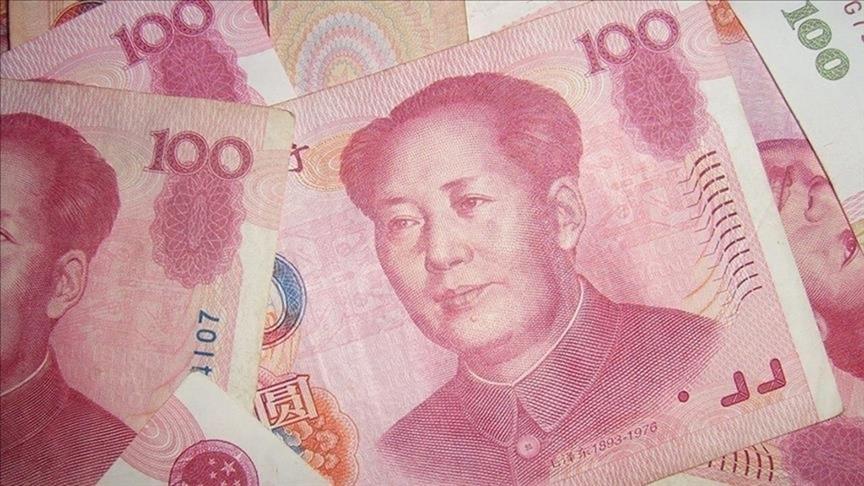The expectation that BRICS nations will discuss the international adoption of the petroyuan during October’s summit, in line with Saudi Arabia’s goal to expand cooperation with China, raises concern of a potential disruption to US dollar’s dominance in global commodity markets, however, experts believe that this shift will take time.
As part of the BRICS Summit, leaders from Brazil, Russia, India, China, and South Africa will gather in Kazan, Russia, on Oct. 22-24.
The BRICS economic cooperation group, now expanded to 10 members with the addition of oil-producing countries such as the UAE, Ethiopia, Iran, Egypt, and Saudi Arabia, will discuss issues of strategic importance at the summit.
As the world’s largest oil exporter, Saudi Arabia’s statements about considering alternative global pricing methods is expected to be on the agenda.
Saudi Arabia, which also participated in Project mBridge aimed at researching and developing the use of central bank digital currency, known as CBDC — the digital form of a country’s fiat currency that is regulated by its central bank– in international payments, previously stated that it is open to using the petroyuan instead of the petrodollar in the international oil market.
– Replacing petrodollar will take time
Due to the growing relationship between China and Saudi Arabia beyond the energy sector and the scale of Chinese investments in Saudi Arabia, the Chinese renminbi could be traded more, but it is unlikely to replace the petrodollar, Kate Dourian, a non-resident fellow at the Arab Gulf States Institute in Washington, told Anadolu.
Since the Saudi riyal is pegged to the dollar, Dourian said Riyadh will likely avoid making drastic moves that could weaken the dollar, making it challenging to switch from dollar-denominated oil sales.
Moreover, Dourian noted that in a scenario where the petroyuan is used instead of the petrodollar, if the dollar strengthens against the yuan, sellers will need to consider the exchange rate risk.
She also emphasized that China’s economic growth is not as robust as it once was, which will impact the country’s oil demand.
Noting that the dollar’s role as a dominant currency among nations has led Saudi Arabia to consider other alternatives, Dourian said that while the process of de-dollarization is taking place gradually, it will take a long time for the Chinese renminbi, which is not yet fully convertible, to replace the dollar as the world’s reserve currency.
‘The greenback is still the world’s dominant currency though its share of the foreign exchange market has declined,’ she said.
The dollar’s share of the global foreign exchange market is currently around 60% compared with 72% in 2000 while the Chinese renminbi has gone from zero to 2.6% over the same period.
‘This is why any attempt to challenge the dollar’s dominance or find a replacement currency will take time and it is not certain that such an effort would succeed,’ Dourian added.
– CBDC gives yuan power to compete with dollar in long term
According to Julien Mathonniere, an oil market economist at the London-based Energy Intelligence Group, the question of ‘why would China desire to switch to the petroyuan and what kind of constraints would it create for the rest of the world’ needs to be asked.
Sanctions imposed on Russia following the Russia-Ukraine War served as a wake-up call for China, Mathonniere said, which could be why Beijing is seeking to distance itself from the Western-centered financial system to avoid facing similar sanctions in the event of a dispute with the US.
As a result, China has been quietly working to internationalize its currency since around 2015, he added.
Though the share of the renminbi in global trade agreements increased from 1% to 5% in recent years, Mathonniere noted that it still lags significantly behind the euro and the dollar, which remains central to every trade agreement.
However, Mathonniere pointed out that the CBDC, which is currently in the project phase, is the only way for the yuan to compete with the dollar in the long term.
‘If that happened, then buyers would be able to pay for oil in US dollars, but they could also pay for oil in renminbi and traders would likely choose the cheapest option to settle their trade,’ he said.
‘It also means that China would regain some sovereignty from a monetary perspective because its central bank would not have to keep large reserves of US dollars to pay for oil and other commodities, like it does now,’ Mathonniere added.
Should the yuan become an international reserve currency, Mathonniere said it will make it impossible for China to have a trade surplus as it is now.
‘China would receive so many yuans from the rest of the world – since it runs the world’s largest trade surplus – that moving this huge surplus around would create large imbalances, impact exchange rates and destabilize monetary policies everywhere around the world,’ Mathonniere concluded.

